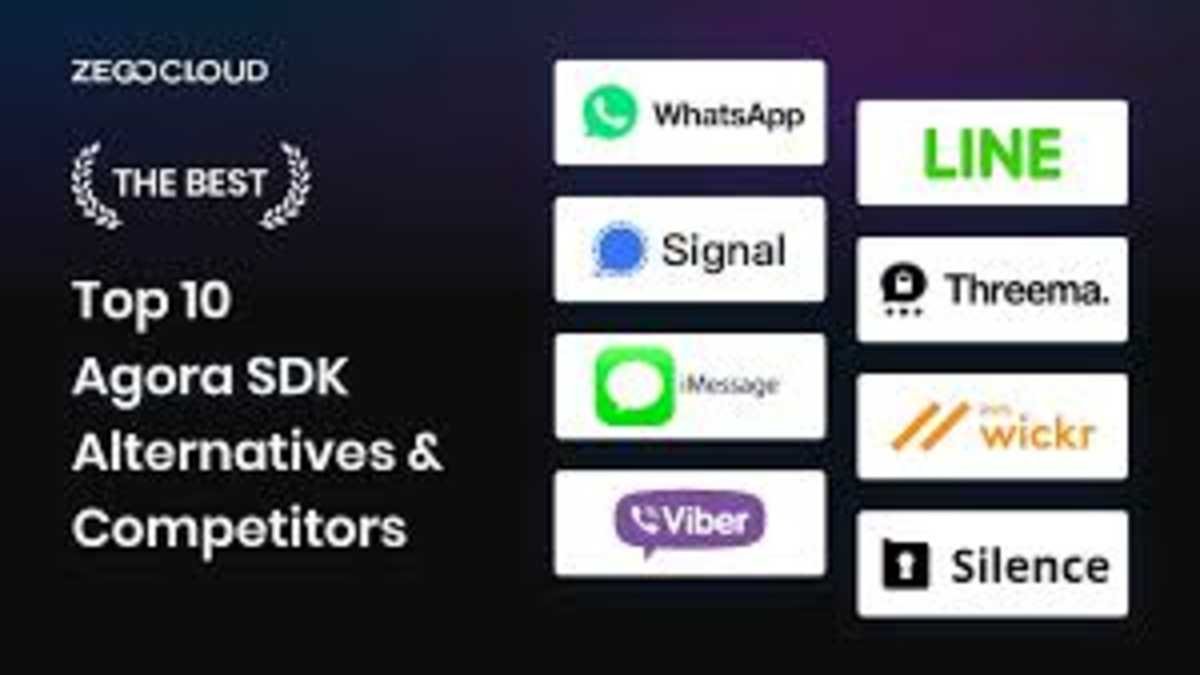In today’s digital world, privacy has become a growing concern, particularly when it comes to communication. With an increasing number of individuals and organizations relying on messaging apps for daily conversations, encrypted messaging apps have gained popularity. These apps provide end-to-end encryption, ensuring that only the sender and recipient can read the messages exchanged, protecting personal information from hackers, unauthorized surveillance, and even the service providers themselves. But as the demand for privacy grows, so does the debate over data protection and government regulation.
Short Description
Encrypted messaging apps are becoming essential tools for privacy-conscious users in the digital age. Offering end-to-end encryption, these apps ensure that only the sender and recipient have access to the content of the messages, shielding them from hackers and unauthorized access. Here’s a look at how encrypted messaging works and some of the top apps offering this level of privacy.
How Encrypted Messaging Works
End-to-end encryption (E2EE) ensures that messages sent through these apps are scrambled in such a way that only the intended recipient can decrypt and read the message. When a message is sent, it is encrypted on the sender’s device using an encryption key. The message then travels through the network in its encrypted form, and only the recipient’s device has the corresponding decryption key to unlock the content.
This method prevents anyone – including the app provider – from accessing the message content. Even if an intruder manages to intercept the message while it is in transit, they would only find scrambled, unreadable data.
Leading Encrypted Messaging Apps
Several apps have risen to prominence due to their focus on providing robust privacy protection and end-to-end encryption. Below are some of the leading encrypted messaging apps:
- Signal
Signal is widely regarded as one of the most secure messaging platforms available. It uses the open-source Signal Protocol for encryption and is known for its commitment to privacy. Signal does not store any metadata or user information, making it a favorite among privacy-conscious individuals. It is free, ad-free, and offers text messaging, voice and video calls, and group chats. - WhatsApp
WhatsApp, owned by Meta (formerly Facebook), has integrated end-to-end encryption for its users’ communications since 2016. The app is widely used across the globe, offering text messaging, voice, and video calls, and even multimedia sharing, all encrypted. However, despite WhatsApp’s encryption, its ties to Facebook have raised concerns about potential privacy risks, especially regarding data-sharing practices for advertising purposes. - Telegram
Telegram offers a range of privacy features, including end-to-end encryption for “secret chats,” but regular chats are encrypted only between the app and the server, not end-to-end. Telegram’s focus is on providing a fast, feature-rich platform that allows for large group chats, file sharing, and more. While not fully end-to-end encrypted by default, its secret chat feature is a highly regarded option for those looking for added security. - Threema
Threema is a paid app that offers end-to-end encryption for messages, voice calls, and multimedia files. The app has gained a reputation for prioritizing privacy, offering features such as the ability to send messages without requiring a phone number, instead allowing users to generate anonymous IDs. Threema does not store any personal data on its servers, and all messages are encrypted by default. - iMessage
Apple’s iMessage platform also supports end-to-end encryption for users of Apple devices. iMessage ensures that only the sender and recipient can read the messages, and the encryption is integrated seamlessly into the iOS ecosystem. However, it is important to note that iMessages are only encrypted when sent between Apple devices, leaving out Android users and making cross-platform communication somewhat limited in terms of privacy.
Why Use Encrypted Messaging Apps?
The rise in cybercrime, identity theft, and surveillance has made privacy a top priority for many individuals and businesses. Encrypted messaging apps offer a vital layer of protection by ensuring that personal conversations are kept confidential. Whether it’s for sensitive business communication, political activism, or simply maintaining privacy, these apps provide users with the security to communicate freely without fear of interception.
Additionally, encrypted messaging can protect against data breaches and hacking, which have become increasingly common in recent years. Many governments and even hackers seek access to private messages for various reasons, but end-to-end encryption provides a safeguard against such attempts.
Privacy vs. Regulation
Despite the security that encrypted messaging apps provide, they have also been at the center of debates on privacy versus regulation. Governments around the world have expressed concerns that encryption can be used to hide criminal activity, such as terrorism or child exploitation, and have pushed for “backdoors” that would allow law enforcement agencies to access encrypted communications when needed.
However, tech companies and privacy advocates argue that creating such backdoors compromises the integrity of encryption and endangers users’ privacy. Finding a balance between ensuring privacy and enabling law enforcement to protect society from harm remains a complex issue.
